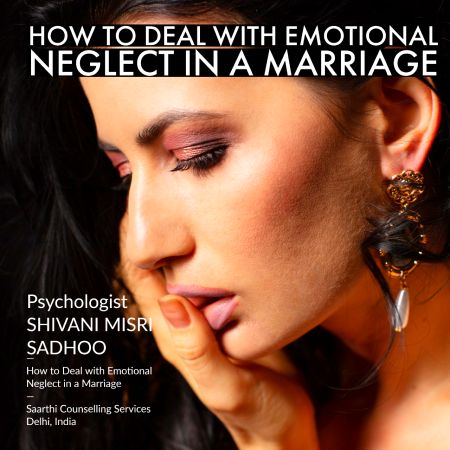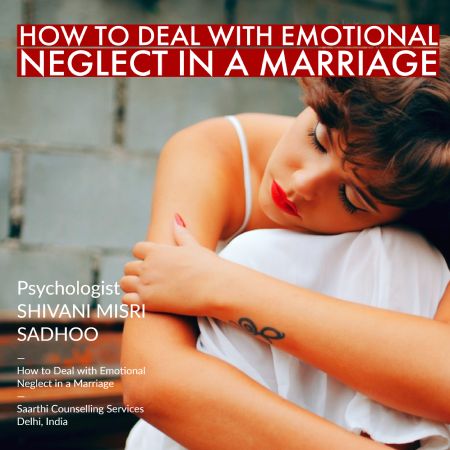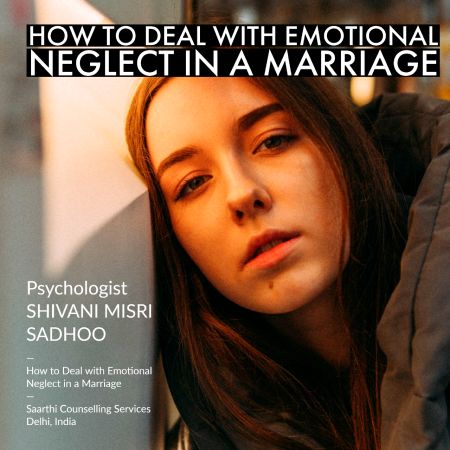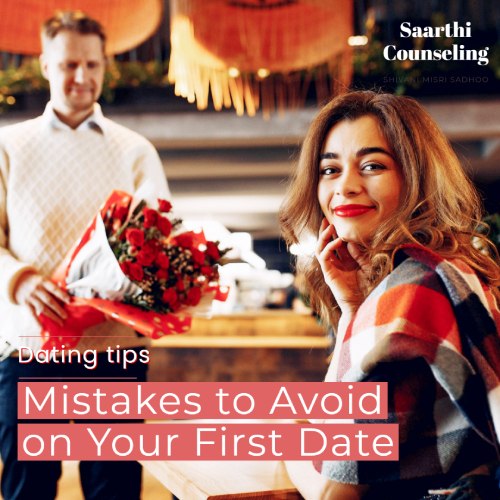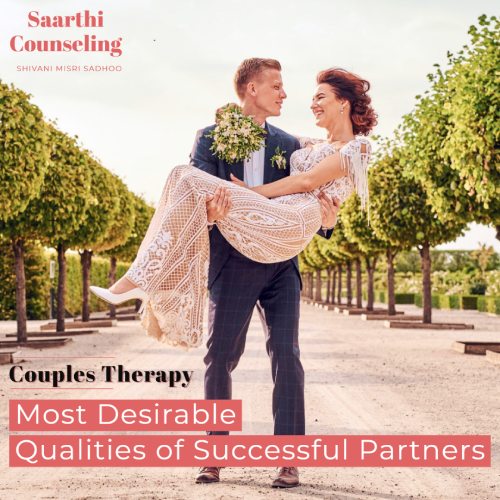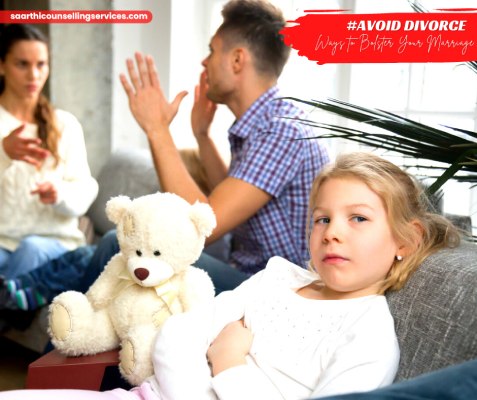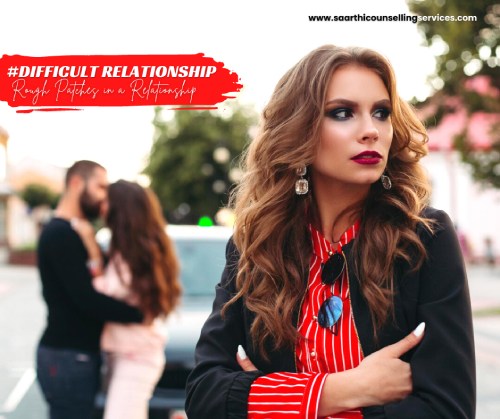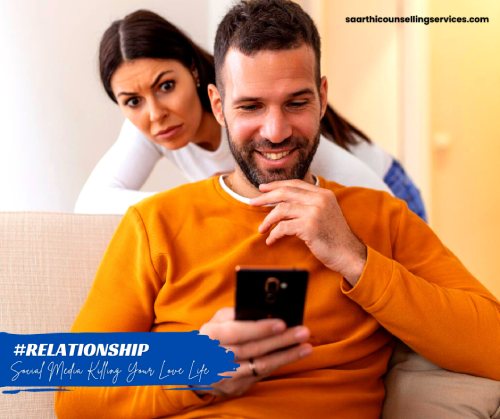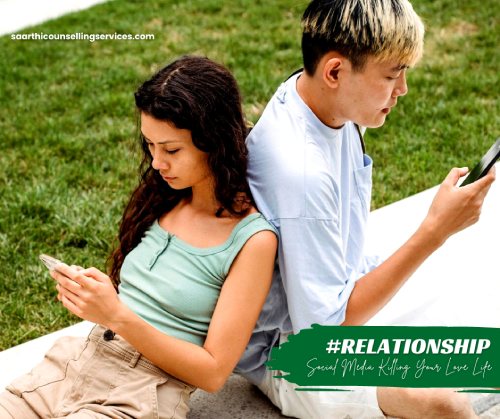Emotional neglect happens when the emotional needs of an individual are disregarded or are not valued in a relationship. For the one on the receiving end of the neglect, it could be traumatizing and could harm their psyche. Sadly, emotional neglect in marriage is mostly swept under the rug, simply because it is not as visible as physical pain. Some couples may not even realize that they are suffering from the effects of emotional neglect in their relationship.
Signs of emotional neglect in Marriage
The first thing you require to do is to identify the signs that you are suffering from emotional neglect in your marriage. As each marriage dynamic is distinct, its manifestations in your relationship are also different.
However, there are certain tell-tale signs to look out for:
- You feel alone in your relationship.
- You will rather spend time alone than be with your partner.
- You do not engage in any social activities together.
- You are shut down by your spouse when you talk.
- You repeatedly suppress your feelings
- You do not feel that you can be yourself around your partner
- You are not clear about what your spouse wants from you
How Does Emotional Neglect Damage Relationships?
Shivani Sadhoo says emotional neglect is the bane of several marriages.
It is damaging to a relationship since emotional support is one of the core bases to a successful marriage. When there is emotional support, affection, and intimacy also follow. And without affection and intimacy, both partners will become unhappy. The level of emotional support in each marriage differs according to the different emotional needs of the partners involved. Emotional neglect is contextually relative; the extent of what is defined as neglectful conduct varies on a case-to-case basis.
Delhi’s top marriage counselor Shivani Misri Sadhoo shares some tips to cope with emotional neglect in marriage.
Do not play the victim
It certainly hurts when your spouse is not fulfilling your emotional needs. However, this is no reason to play the victim card. If you do that, it will simply worsen the situation. You end up in a blame game and that does no favour for your relationship.
The finest way to deal with it is to talk directly to your partner. Let them know how you feel and where you think they are lacking. When talking to your spouse, make certain you do it in a respectful and honest manner. There is no problem in a marriage that open and honest communication cannot fix. This is one of them.
Work through it together
A marriage is a two-way relationship. You cannot fix a problem if there is just one interested party. Both parties should make an equal effort at fixing a problem.
Once you open up to your partner, you require to openly discuss and agree on what steps you require to take to fix the problem. To begin, you can speak up whenever you see any signs of their neglectful conduct. In that manner, they will be able to identify when they are doing something incorrect. Awareness of their behaviour is a good beginning when correcting this issue in your marriage.
Address the cause
When you face problems in your marriage, the first task to do is to identify the underlying cause for such an issue. You can also use the same procedure in this situation. Before you react to your partner’s behaviour, think about what could be causing it.
- Is this a recent problem or has your partner been in this manner since the beginning of your marriage?
- Is it potentially triggered by an event or situation?
- Has there been a sudden alteration in your spouse’s behaviour?
If the behavioural pattern is triggered by a situation, then your probabilities of fixing it are far better than if it were part of your relationship from the beginning.
Be proactive
When you are suffering emotional neglect from your spouse, it may be a good time to assess yourself too. Are you neglecting your spouse in other ways?
Every individual’s requirements are different. Some individuals value emotional support while others value physical intimacy in a marriage. Whatever it is that is the priority of an individual, make it a habit to be aware of it and do your best to fulfil those requirements the best way you can.
Make time together
Most problems in a marriage can be resolved by making an effort to spend quality time and doing something together. For example, you can travel together or have date nights once a week.
Marriage can be hard work. While you have this idea of a happily ever after, it cannot be denied that you will experience ups and downs in your marriage. By staying committed to each other, you can overcome these marital issues.
See a counsellor
A professional counselor is a great choice if you want to resolve conflicts in your marriage like emotional neglect. A counselor can provide an objective and outsider point of view of your problems.
The counselor could provide some insights into your marital problems that you may not be able to see since you are emotionally and directly involved in the relationship. The counselor can even suggest methods to resolve these problems by assessing the dynamics of your relationship.
Many couples are hesitant to see a counselor due to the stigma linked with it. However, there is nothing wrong with seeking assistance in order to work through your relationship issues, especially if it means saving your marriage.
